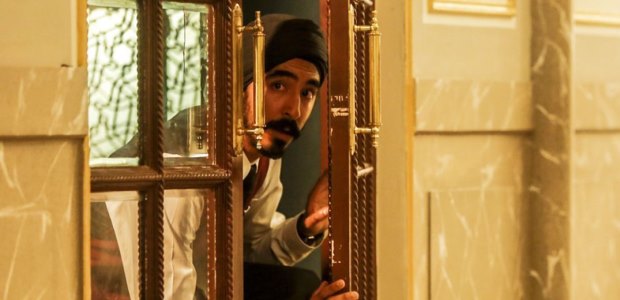“26/11” is a date many people will never forget; perhaps as many as a billion people. It’s the day terror struck the heart of India through separate but coordinated attacks across various parts of the Mumbai metropolis. Even now, a decade later, the very mention of that tragic event can open wounds that have barely healed. Debut feature director Antony Maras knows and respects this, which is why Hotel Mumbai is not only a gripping thriller based on those events, but also one with an unusual perspective.
Maras also knows that as a docudrama, re-enactment of that terrible day can hardly pass for popcorn entertainment. Having co-written the script based on interviews with eye witnesses and news reporters, Maras also avoids offering any political commentary other than what is already known. As such, we know very little about the ten young men who infiltrate the Mumbai slums on nothing but a rubber dinghy. The film doesn’t even say where they have come from except for implied clues in their Punjabi accents and extremist ideologies. What is certainly clear are their instructions to inflict maximum carnage for the whole world to see. And so it begins – civilians from the Chhatrapati Shivaji railway terminal to the popular Leopold Café, and ultimately the Taj Palace Hotel are gunned down mercilessly by perpetrators armed to the teeth. In nail-biting detail, the film goes to great lengths to depict the fate of those victims – panic, terror, and massacre – in that order. Editing teams have also done a bang on job in seamlessly blending the film’s dramatized events with real news footage. There is also restraint applied in not going over the top with what could have been gruesome but exploitative violence.
And yet, Hotel Mumbai is far from perfect. In reality, over 170 people lost their lives in twelve separate attacks over a period of three days. In the film, the bulk of the narrative centers on four assailants who terrorize guests and employees of The Taj Palace. The perspective shifts from them receiving cellular instructions from a voice referred to as “The Bull,” to the opulence of the famed hotel, followed by its systematic destruction from within. Opposite these four terrorists are a few key people handpicked to either survive or perish – Dev Patel as an eager young waiter and father, Anupam Kher as daring head chef Hemant Oberoi, Armie Hammer and Nazanin Boniadi as newlywed hotel guests and Jason Isaacs as a Russian businessman, among few others. With the only interjections being brief TV footage of other areas under attack (including a shot segment showing terrorist Ajmal Kasab detained in hospital following his capture), you start to wonder why the narrative doesn’t shift from the hotel to the remaining ten or eleven other places hit. This is followed by absurd and misplaced humour depicting these terrorists as fresh off the boat (no pun intended) and naïve to modern amenities of civilisation – a stark contrast to their otherwise unsympathetic and deadly composure.
Hotel Mumbai doesn’t raise the bar if perceived as an action thriller (especially for a global audience). To be fair, I doubt this film was intended as such. But if the film is intended to showcase an outburst of humanity, resilience to persecution, unimaginable selflessness, and the miraculous will to survive, then Maras, along with the cast and crew, have crafted a heart wrenching film that will become a crowd-pleaser, albeit unintentionally. And adding to its merit, there isn’t a single character that can be defined as either a hero or a villain. Patel himself is back to his career roots, but is masked out (along with Hammer) in all the ensuing chaos, that there isn’t an actual lead character. But as the title suggests, Mumbai’s sons and daughters were slaughtered along with foreign visitors. The fact that the siege culminated at the Taj Palace Hotel is of no consequence given the diabolical nature of pure hatred. The film gets this right without being too on the nose. And then some. In the wake of recent and similar atrocities in Christchurch, New Zealand, the horror and the realism in the act of snuffing out innocent lives can be hard to watch. It’s a reminder of the dark times we live in, but also that we prevail because we are human.
Rating: 




